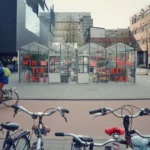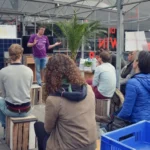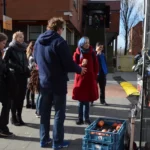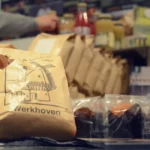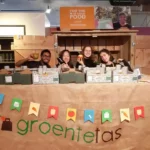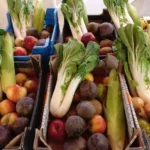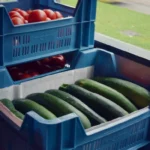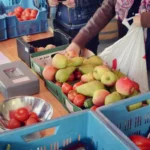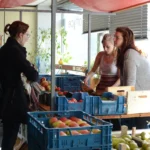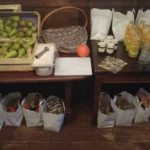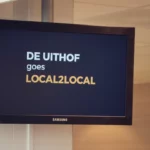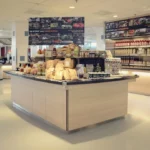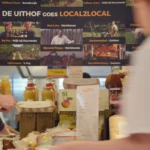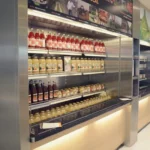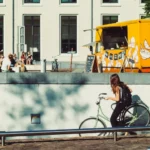Local2Local
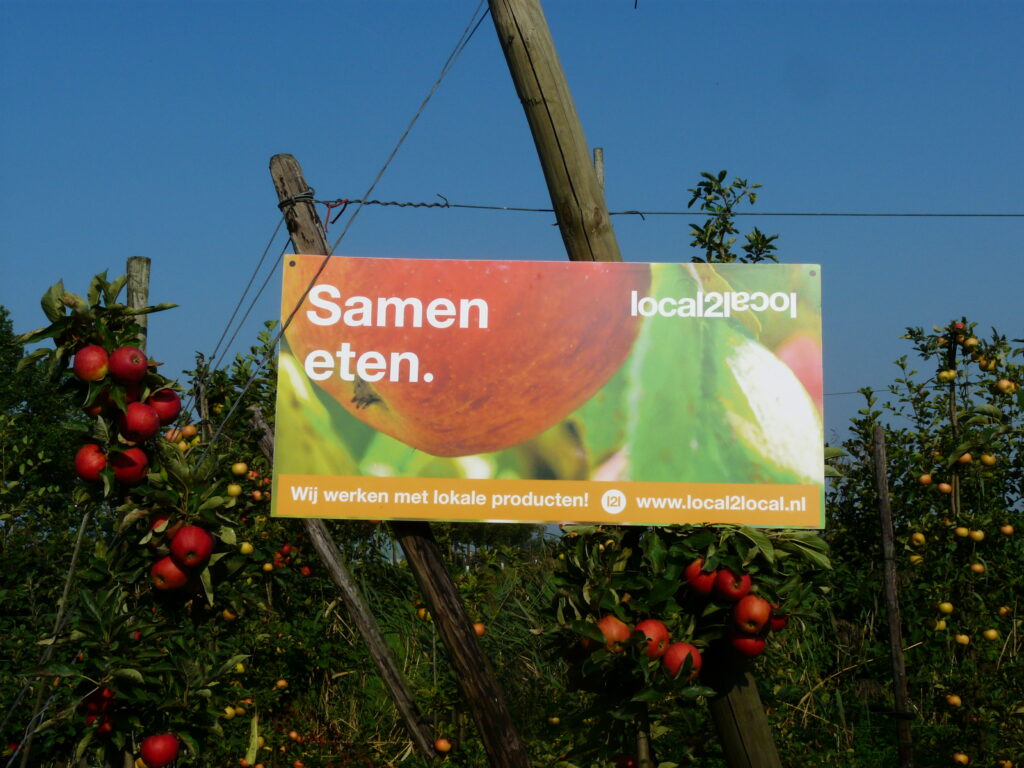
The current dominant food system of high volumes at the lowest possible cost is no longer sustainable, holding us hostage ecologically, economically, socially and culturally. There is no longer a direct relationship between citizens and farmers. Local2Local is convinced that regionally connected (short) food chains are a viable solution to restore this relationship, based on other values, through intensive collaboration and social entrepreneurship.
The very beginning
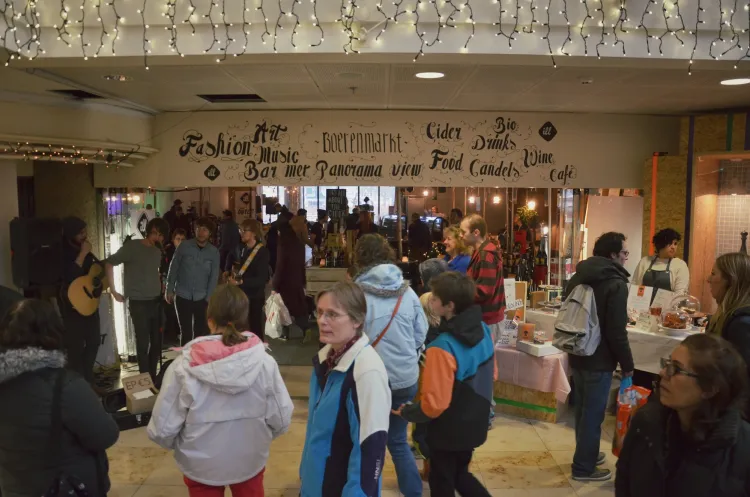
Local2Local launched with its daily pop-up farmers’ market Food-y-Market at Radboudkwartier in Hoog Catherijne in Utrecht in December 2013. This launch resulted in several collaborations with local parties around the Utrecht Science Park, with Local2Local:
- facilitated branding and marketing for local farmers;
- organised local food events;
- provided local products in hospital catering (St. Antonius Hospital, UMC, WKZ)
- conducted food needs inventories among students, staff and residents in the Utrecht Science Park;
- realised the L2L pickup points together with Cambridgebar, Botanical Gardens and Green Office;
- partnered with Stichting Reinaerde for composition and purchase of company fruit;
- marketed products in retail franchises;
- built a local farmer community;
- sold local food bags weekly (Stichting Groentetas);
- developed local product propositions and;
- developed and launched the Local2Local webshop.
Local2Local collaborated with existing farmers’ markets (such as with L2L-member Vroeg in Bunnik) and organised new ones, but we were also part of harvest festivals in the region and in the city, with rolling kitchens, with a permanent catering partner, developed a food truck together with HKU Media students, organised food tastings, handled the distribution and promotion of events for local products, workshops with farmers, linked regional tourist activities (walking, cycling, boating) around Utrecht’s heritage and natural landscape (NWH) to local food, and to celebrate the regional food movement, all this in fact came together at our food festival which we organised twice (2015/2016) in co-creation at Fort Rhijnauwen: Food-y-Fort.
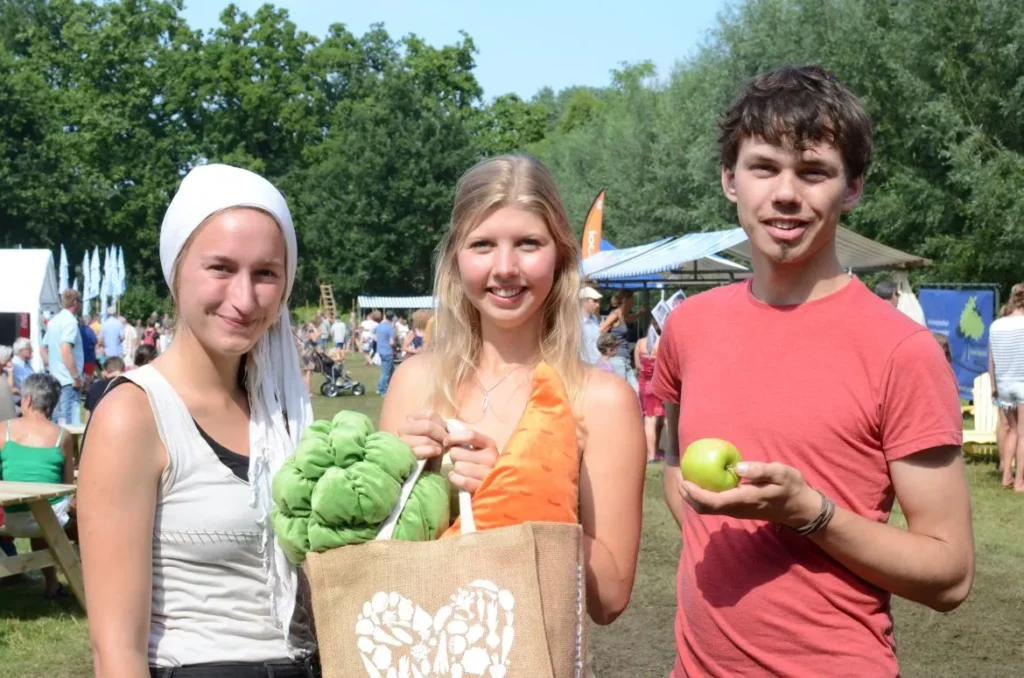
Focus
From the inception of L2L we focused on both the business and consumer markets, but from 2016/2017, it was crystal clear that you cannot ‘just compete’ in the consumer market on your own; it was far too costly to grow in that segment, let alone both. Therefore, we shifted our focus to B2B and reaching the end-user at that customer: B2B2C.
One short food chain helps another
Local2Local itself developed the trading platform / webshop specifically for the (complex) short chain, but in such a way that it would be easily stampable and deployable for other parties: Food Distribution Software (FDS). FDS not only lowers the financial threshold for food initiatives, but also enables them to benefit from what has already been realised: logistics, access to farmers and products and administrative processes.
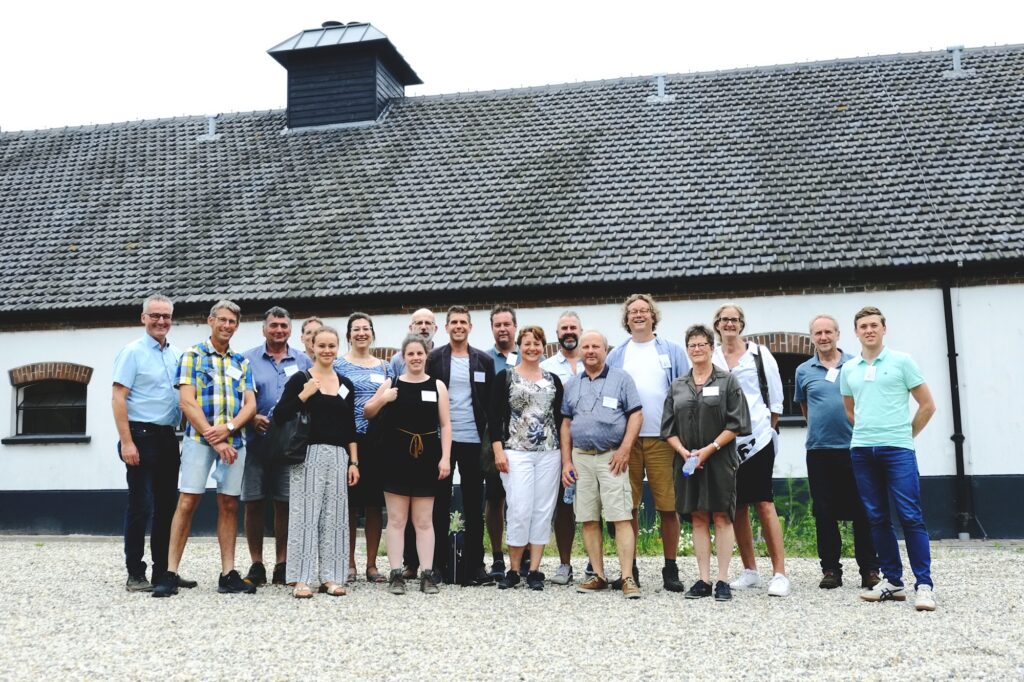
But the relevance of FDS extended further, this cannot be better illustrated than with the relationship we built with the Flevoland region. It started with buying fresh vegetables from BioRomeo in the Noordoostpolder and Martin Topper’s vegetables in Dronten (because vegetables have largely disappeared in Utrecht) and when Martin and 50 other Flevoland farmers and producers started working together as a short chain in their collective Flevofood, it was clear that lessons learned and tools like FDS from Local2Local would come in handy. Read more about that interesting history of short-chain cooperation for their market development here.
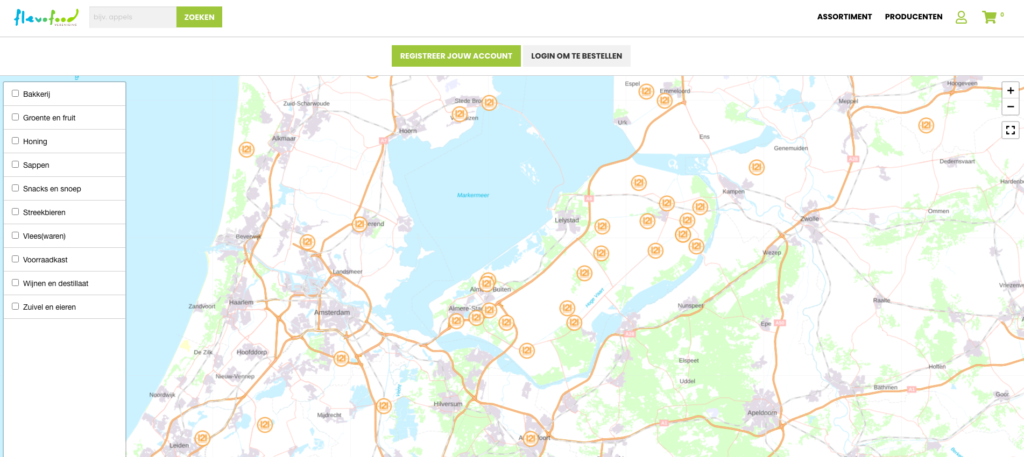
Partnership with MAKRO
From 2016 to 2019 Local2Local and MAKRO were in partnership to incrementally provide the MAKRO-branches with L2L’s regional food offering, positioning the products as a specific Local2Local range within the shops and introducing the farmers with on-site tastings of their products.
Valuing residual streams
After the hottest summer in 300 years in 2018, Local2Local together with organic fruit grower William Pouw launched special apple, pear and apple-pear juices made under an apt name: Utregs Supersap. Juice from fruit that was ‘too ripe’, ‘too small’, ‘too big’ or had hail damage. Still great first-category fruit, of course, but buyers let it lie. We felt that was more than a shame, such a ‘residual stream’. By buying Utregs Supersap, customers save that substantial part of the harvest. A 100% win-win!
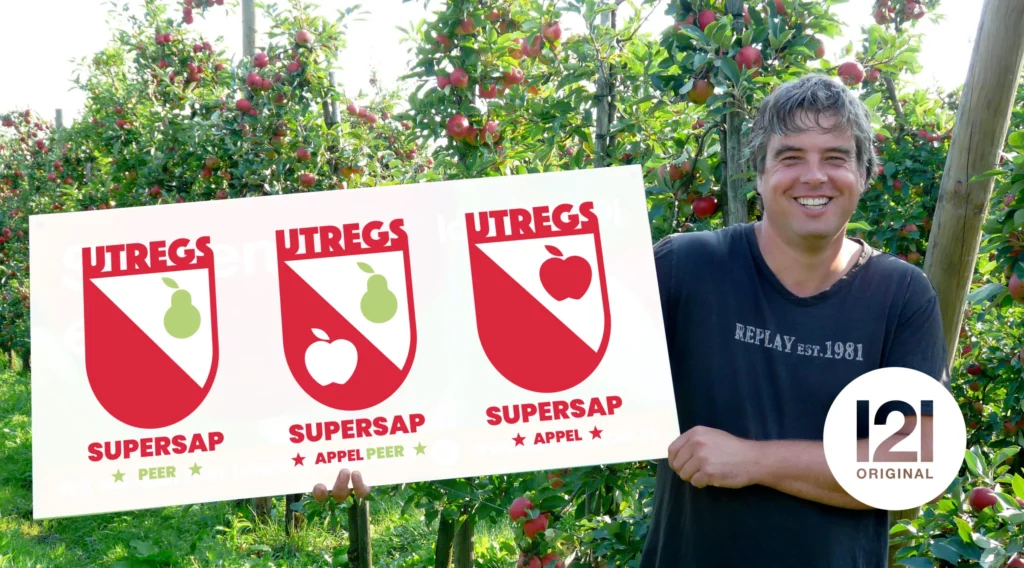
The creation was made financially possible by pre-selling the bottles. This initiative caught on so well that we were able to repeat it after the 2019, 2020 and 2021 harvests. Other fruit growers joined in and now the 5th edition is planned and last year we also launched the Amsterdam variant in this ‘reverse way’ with fruit grower Robert Elshof: Mokums Supersap. (Read more about the ‘Reverse marketplace‘)
2020-2021: emergency response from the short food chain
With the breakthrough of Corona, our plans for the period had to be paused. A direct social demand had come from the Red Cross to help with much-needed food assistance to vulnerable people. The aid agency, through the Task Force Short Chain (of which L2L was a co-founder), joined forces with Local2Local and Flevofood farmers and our then logistical partner Makro. At the time, exports and outlets in the catering industry were down, but with the Red Cross’s Rapid Response Box, fresh produce found its way to people struggling to make ends meet.
This cut both ways. The growers still got a fair price for what they supplied for the parcels, and people who suddenly found themselves below the minimum because of corona, but who could not yet go directly to the food bank, were helped out for a while with such a parcel. The contents of the food parcels were enough to make 2-3 hot meals for two people. In 2020, Local2Local and Flevofood farmers supplied a total of 390,000 kilos of seasonal vegetables, fruit, eggs and bread for the food parcels.
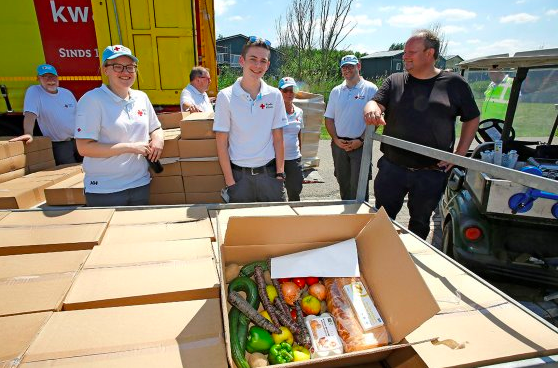
The packages are meant for people who are extra vulnerable due to the corona crisis, for instance due to job loss, and who are not eligible for other help or do not know how to find their way to help. Think of migrant workers, undocumented workers and families who can barely keep their heads above water due to loss of income. With these food parcels, the Red Cross wanted to offer a sustainable solution for people who temporarily fall between two stools.

Food Bank Utrecht
In parallel, Voedselbank Utrecht (11 distribution points in the city) started a process with Local2Local to get more fresh in its food parcels in a very short time, supplied by Local2Local’s cooperating farmers and producers in the Utrecht, West Betuwe, Groene Hart, Flevoland and North Holland regions. This succeeded and the practical experience and needs of the various end users were taken into account in the assortment alignment.
Gorillas
From 2021-2022 Local2Local partnered with flash delivery company Gorillas to meet its customers’ growing demand for local products. With our short-chain partners, we supplied Gorillas locations in Utrecht, Amsterdam, Haarlem, The Hague, Leiden and Rotterdam. In late 2022 Gorillas was acquired by the competition and this ended the partnership.
Partnership with Eurest (Compass Group)
In December 2021, we were able to announce that Local2Local had entered into a partnership with caterer Eurest (Compass Group), as the exclusive supplier of local produce for Eurest kitchens and restaurants.
Eurest and Local2Local share the vision that a food system can be balanced through this close collaboration between buyers and farmers/producers. Shortening the food chain is a powerful tool to restore the connection between citizen and farmer, where the value of food can be fully realised.
This connection also offers good opportunities to work together towards sustainable economic, environmental and social goals. The short food chain has proven to be a serious development perspective for farmers and producers and a powerful way to get a grip on the living environment.
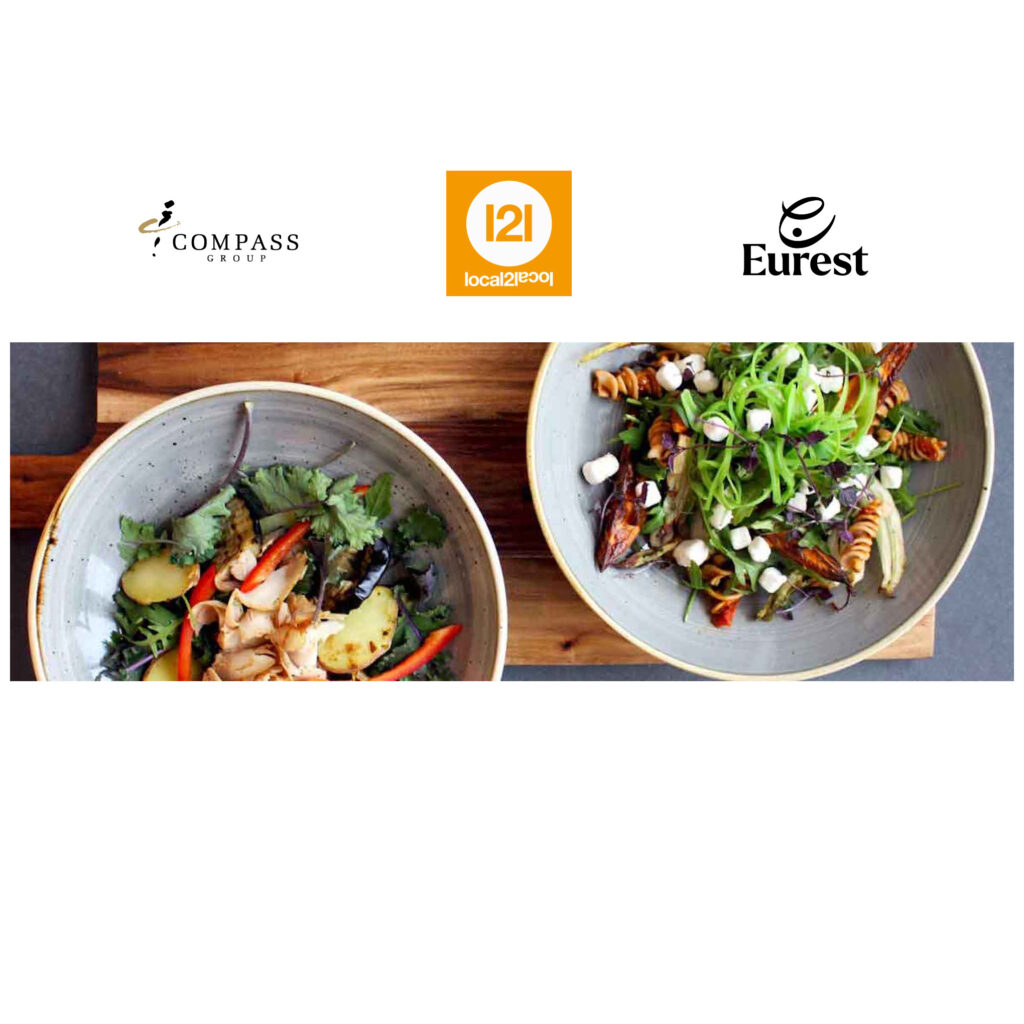
Eurest and Local2Local want the customer to become part of the impact. This offers added value for all parties in the chain. Transparency and connection are important keys here, the foundation of the roll-out of robust short chains that are unique in the Netherlands. The New Normal is Local.
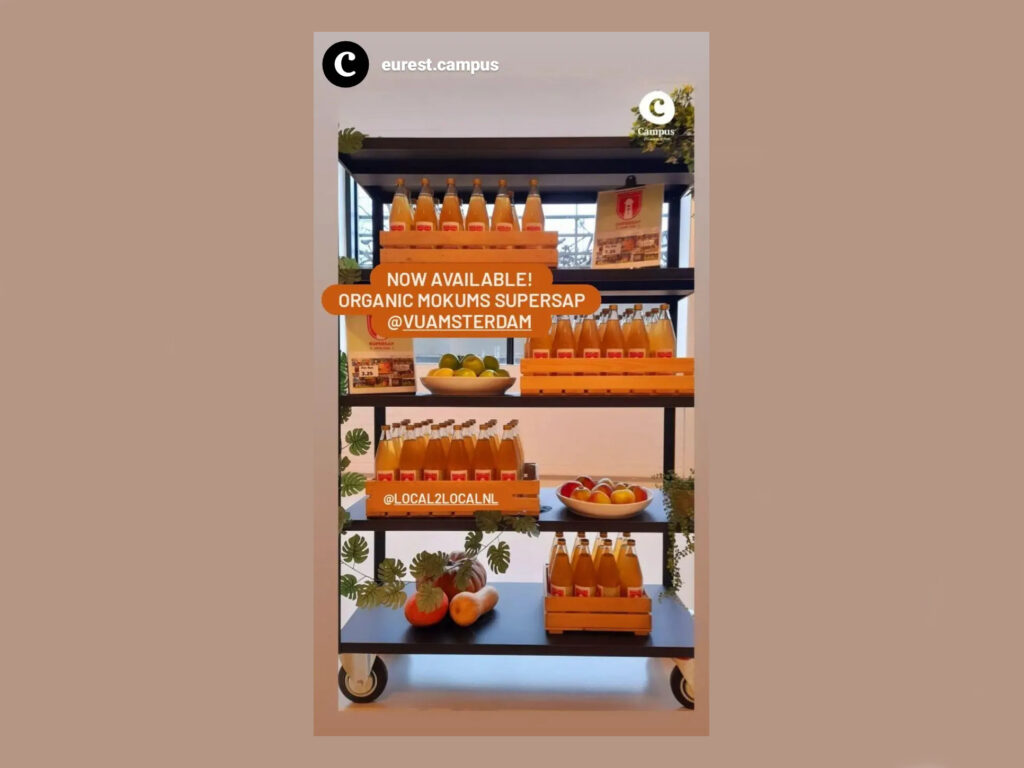
Strategic partnership with other short chains
L2L’s business partnerships were possible partly because of the relationships we built with the other short food supply chains (farmer collectives) in surrounding regions. Local2Local initially developed on its own with a farmers’ collective in the Krommerijnstreek and West Betuwe, but we were convinced that the energy of short chain initiatives can dissipate relatively quickly in the battle with the traditional food market and the streamlined, efficient ‘long chain’. Cooperation has always been the key for us: you have a lot in common, a lot is already available and together you fill in what is still missing.
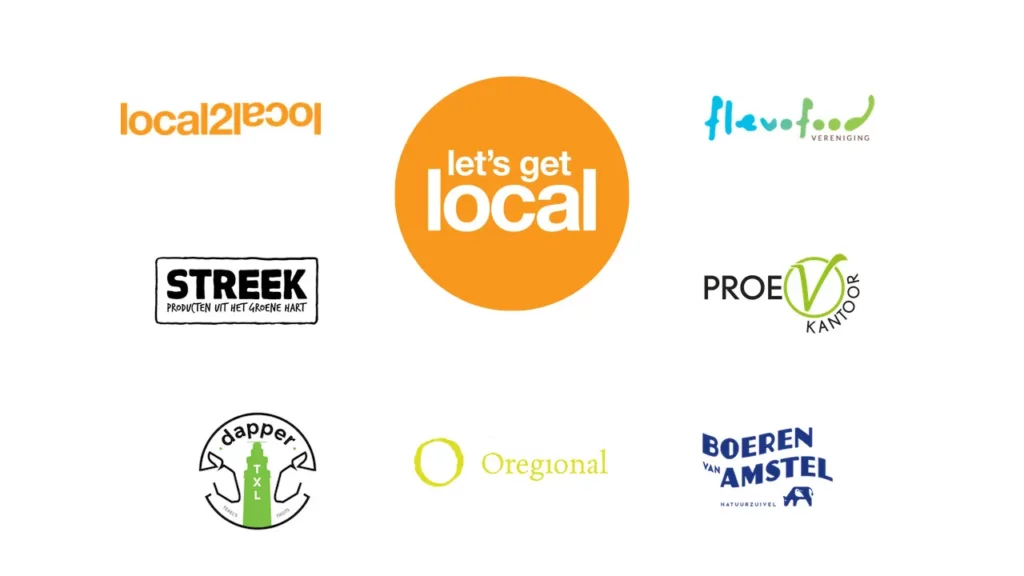
Our current strategic cooperation has had a run-up. Since 2015 with Groene Hart Cooperatie (Zuid-Holland/Utrecht), since 2016 with farmers in West Betuwe, since 2018/2019 with Vereniging Flevofood (Flevoland), since 2019 with Dapper. (Texel), since 2020 with Boeren van Amstel, ProevKantoor (Noord-Holland) and with Vereniging Noordzeevis IJmuiden, since February 2022 with Oregional (Gelderland e.o.) and two under construction in Overijssel and Limburg.
Together you go further
This joining of regional forces enabled us to introduce this special collective of food producers to buyers at CIRCL on Gustav Mahlerplein on Thursday 27 October 2021. The central theme: the shortest route between farmer and catering company for healthy, fair and sustainable products for employees at the Zuidas in Amsterdam. This was also the moment we launched our reverse marketplace Let’s Get Local.
“In recent months, the City of Amsterdam, Hello Zuidas, Hogeschool van Amsterdam, Rabobank and Local2Local have been working to prepare for a robust food chain around the Zuidas. This has been made possible by the unique collaboration between the progressive farmer collectives Farmers of Amstel, Groene Hart Coöperatie, Proevkantoor, Flevofood and Local2Local. This special and growing offer is simply available for business customers on local2local.nl. You practically can’t leave town without passing one of our farmers, so all those expensive and unsustainable middlemen are completely unnecessary,” Mark Frederiks of Local2Local outlined.
For this move, we collaborated with Hello Zuidas, Municipality of Amsterdam, Impact Hub Amsterdam, Hogeschool van Amsterdam and a growing number of partners, creating an ambitious and businesslike network of hospitality, caterers and entrepreneurs. Gorillas, Eurest (Compass Group) and Green Business Club Zuidas signed up for large quantities of Mokums Supersap in pre-sales, giving a nice boost to the demand-driven market of sustainable local products with other participants.
Reversed marketplace
Everything Local2Local does is aimed at restoring the connection between farmer and citizen. In the most literal sense.
Mokums Supersap was activated in autumn 2021 along with (the fifth edition of) Utregs Supersap 2021 and other campaigns on our new platform, the reversed marketplace Let’s Get Local.
From 2016 to 2021, Local2Local ran this form of processing as a test case, to learn and refine, from small to bigger. Buzzed Beer (honey beer) and the Get Wasted pear vodka emerged from student internships with HKU and UU. Utregs Supersap was a challenge that demanded quick action, but the successful momentum we gained with our partner and customer network led to the launch of the Let’s Get Local platform.
Our partners and customers ensured a successful launch of the new campaigns with the funding/purchasing of Utregs Supersap, Mokums Supersap and Texel’s recycled peas, among others.
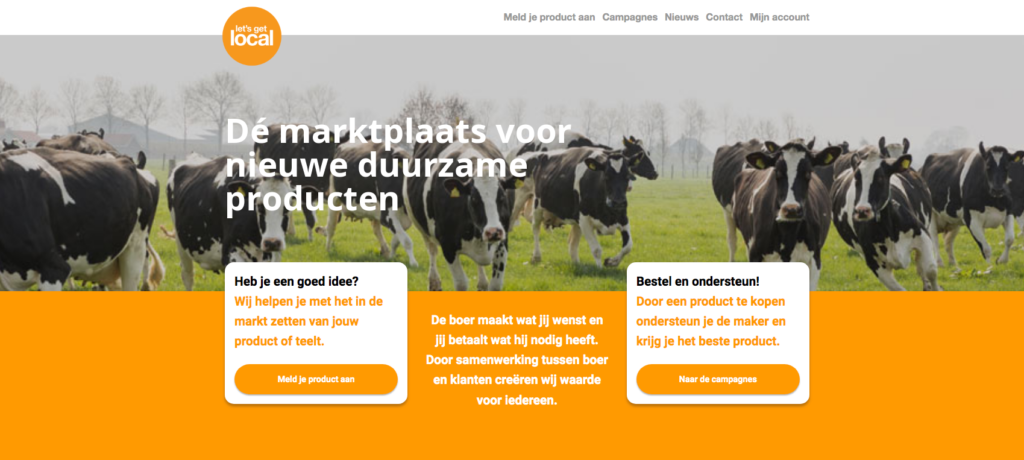
On this platform, a farmer can easily register a product or cultivation wish. Companies and consumers make this wish a reality by making a purchase on the future. A product is created with only winners. The customer gets the best product and the farmer the opportunity to become more sustainable.
“The farmer makes what you want and you pay what he needs. Through collaboration between farmer and customers, we create value for everyone.”
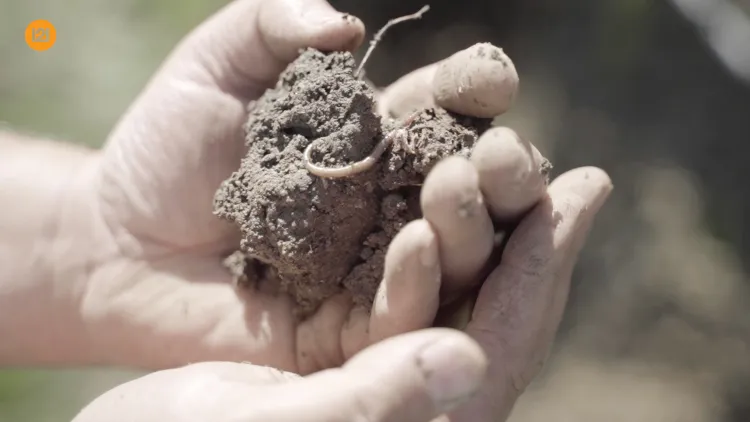
A regional and regenerative food system
Local2Local’s approach to the market is 100% based on the belief that the food transition is possible AND at our feet, where demand-based production, and thus the direct connection between makers and eaters is elemental to a connected, regional and regenerative food system. So that makers can invest in sustainable agriculture, build a new perspective, and customers and citizens can directly influence what that sustainable food system looks like. And that, in turn, cannot happen without collaboration between everyone who has a stake in it: economically, ecologically and socially.
The New Normal is Local. NOW is the time.
Mission
Local2Local restores the relationship between producers, buyers and consumers with its own transparent food chain. In doing so, we help restore our eco-system, stimulate the local economy and contribute to the preservation of crafts. You order directly from the producer and thus get a fresher and tastier product.
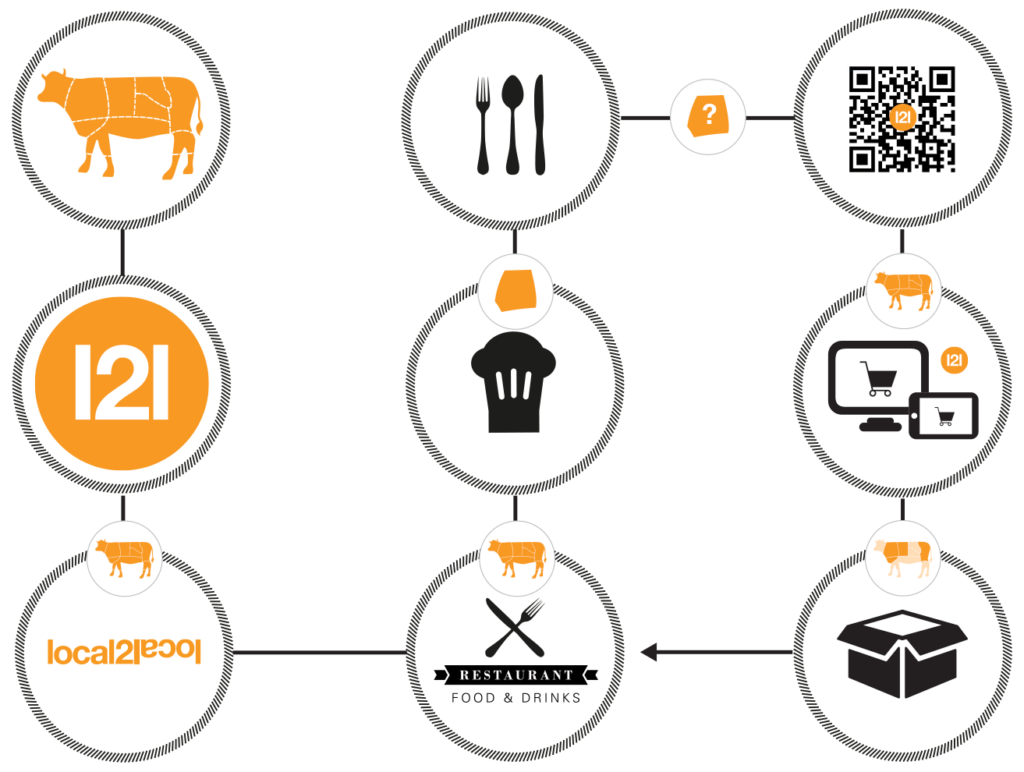
Local2Local differentiates itself from current offerings with a tailored, affordable range of fresh and locally sourced (sustainable and organic) products that match demand in the food transition:
- Local2Local sells fresh regional produce directly, B2B and to consumers (B2B2C)
- Economical, ecological and societal impact-driven projects;
- Selling the Local2Local model (as a service) in other regions;
- Alternative forms of collaboration, investment and financing
Radical transparency in the food chain
Mark Frederiks, CEO of Amped and Local2Local, was one of the speakers on day 2 (May 25th 2022) of the Global Blockchain Convention in Dubai, on the topic of ‘Food Supply Chain & Blockchain‘. Stephan Nilsson of Unisot introduced and announced Local2Local and Unisot’s partnership, and Mark Frederiks emphatically made the case for Local2Local’s local/regional food system approach and Unisot’s BSV-platform as the ultimate instrument to facilitate radical transparency in the regional food systems, regenerate agriculture and restore the relationship between farmers and citizens. Watch his presentation:
